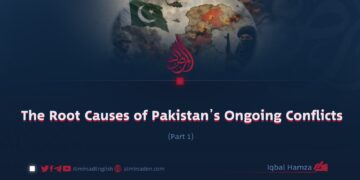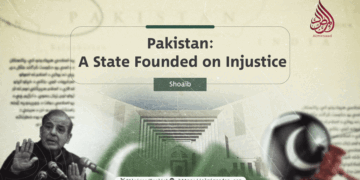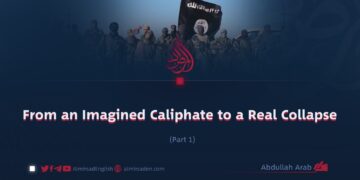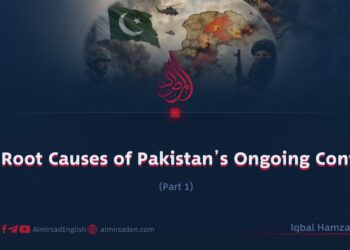Part 18
Author: Ihsan Arab
The Fragmentation of Islamic Nations: The Core Mission of the Modern-day Khawarij
One of the gravest threats that has emerged in recent years against the Muslim Ummah is the rise of a group known as “Daesh”—a militant faction that entered the global scene under the guise of establishing an Islamic caliphate and promoting Muslim unity. In practice, however, its actions resulted in widespread devastation, division, and the disintegration of the Islamic world.
A careful examination of recent geopolitical developments reveals that ISIS—whether by deliberate intent or as an unwitting instrument—has consistently furthered the strategic objectives of Islam’s adversaries. It has functioned effectively as a means to undermine the political, social, and religious foundations of Muslim-majority states.
Western powers, for decades, have harbored deep concerns over the potential unity, demographic strength, and natural resources of the Islamic world. They are acutely aware that a united Muslim Ummah could command immense global influence and emerge as a powerful, independent force capable of altering the international balance of power.
To counter this prospect, a sophisticated and deeply embedded strategy was devised: to fragment the Islamic world into smaller, weaker entities. Within this framework, the Daeshi Khawarij played a pivotal role as the operational arm. In Iraq, ISIS captured Sunni-majority regions and declared a self-styled caliphate, thereby intensifying sectarian and ethnic tensions.
The consequences were swift and far-reaching. In the north, the Kurds advanced toward greater autonomy; in the south, Shia factions built increasingly independent political structures; and the Sunni population found itself trapped in a brutal conflict between ISIS and various militias. The ultimate result was the effective division of a once-unified Iraq into three separate zones, each falling under the sway of foreign powers.
Syria suffered a similar fate. The ISIS takeover of several key regions led to the consolidation of Bashar al-Assad’s central government, the marginalization of opposition forces, and the invitation of foreign military intervention under the pretext of combating terrorism.
Consequently, Syria was carved into multiple spheres of influence: some controlled by the regime, others by Kurdish forces, rebel groups, and international actors such as Turkey and the United States. The territories briefly held by ISIS were left devastated and in ruins.
In Libya, following the collapse of its central government, ISIS exploited the ensuing vacuum by establishing bases in strategically significant cities like Sirte. Rather than stability and national reconstruction, the post-Gaddafi era devolved into an environment dominated by fragmented regional governments and armed militias. Here again, ISIS accelerated national disintegration by inciting internal strife and recruiting disillusioned youth.
These patterns collectively demonstrate that ISIS has, in essence, acted as the executor of an old yet malicious strategy, now marketed under the rubric of the “New Middle East.” This blueprint, devised by the enemies of Islam, seeks to dismantle major Islamic nations and reconfigure them into weak, ethnically or sectarianly divided micro-states.
In pursuit of this agenda, the Daeshi Khawarij have played a decisive role—fomenting sectarian discord, erasing established borders, and enabling foreign interference. Through these means, they have not only paved the way for external domination but also severely undermined the sovereignty and cohesion of Muslim lands.
Despite their public rhetoric invoking the caliphate and the unity of the Ummah, the actions of ISIS have delivered some of the most devastating blows to the collective strength, unity, and stability of the Muslim world. Nations that once harbored hopes for solidarity and progress now grapple with geographic fragmentation, sectarian animosity, and widespread devastation.
It is, therefore, imperative for the Muslim Ummah to exercise vigilance and wisdom. Every movement that fosters division, whether cloaked in religious language or appealing slogans, must be critically scrutinized. The reality is clear: any initiative that sows discord and facilitates disintegration—regardless of its outward claims—ultimately serves the interests of Islam’s enemies.



















































